- Home
- Trevor Hoyle
Rule of Night Page 2
Rule of Night Read online
Page 2
They clatter down the narrow streets, echoes banging back and forth from wall to wall. A cat sneaks into the shadows. An empty milk bottle stands on a doorstep until Crabby kicks it into the gutter. The owner of the house opens the door and closes it again.
On Drake Street, merry with drink and laughing like drains, they cram into the Fusilier. The Irish landlord looks askance and pulls three pints without moving his eyes. Near the small platform with piano and drums a hen party is in riotous progress, a dozen girls telling dirty jokes and shrieking into their Cherry Bs and port and lemons. Kenny is attracted and disgusted by this behaviour; he reckons women should keep their gobs shut and not make a display of themselves – yet a gang of birds on the town is always game for a bit of the old how’s-your-father. And if you don’t buy a ticket you can’t win the raffle, he thinks, standing above the circle of bright faces and attempting to make with the repartee.
‘Ooo-ell,’ one of them says, all ringlets and sticky lips, ‘if it isn’t Omar Sharif.’
Kenny smiles; but he’s holding himself inside. His eyes are like cold black marbles. Round and about people are grinning with their backs turned, but he knows they’re thickheads and can take it.
He says, ‘Thank you Miss United Kingdom.’
‘Go home and send your dad,’ the eldest in the party, a woman of about twenty-seven, tells him. More shrieks and stricken laughter.
‘You couldn’t afford him on your pension.’ The old boot.
‘Run along, sonny, and drink your Tizer.’
Arthur is chatting up a girl with a pale round face and startling green eye-shadow, resting his forearms on the back of the chair and chewing gum in her ear. She looks as though she might be tempted, glancing up now and then at Arthur and giving him a small timid smile.
Crabby turns his back on the table and mutters to Kenny out of the corner of his mouth. ‘There’s bugger-all here. We should have gone to the Pendulum. Least there’s some decent music there.’ He has a fine faint scar on his jawline which shows through the soft adolescent stubble. ‘Come on, let’s piss off.’
‘Hang about,’ Kenny says, watching Arthur and the girl: he wants to see what happens. At the same time he’s trying to think of a remark he can toss over his shoulder at the hen party. Women in a group are all the same, they get cocky and smart and think they’re being dead clever. But he wouldn’t mind tackling the older one, taking her on Rochdale market after the pubs shut and giving her a good grope in the shadows; she has a big firm pair.
‘You don’t get many of them to a pound,’ he says to Crabby.
‘You wouldn’t get within sniffing distance.’
‘Who’s bothered anyway; they’re a load of old slags.’
‘What about the Pendulum?’ Crabby whines. His face has a debauched pallor under the fluorescent lights. Not a single thought worth preserving has ever passed through that shaven skull. He left Holborn Street School in Brimrod when he was fifteen and started work in the stockroom at Asda Queens, which is an old defunct cotton mill in Castleton that’s been converted into a giant supermarket. He was fired when they caught him with eleven packets of Lyons Quick-Brew Tea and four bars (one partly eaten) of Galaxy chocolate stuffed into various pockets and down the inside of his boots. Whether it was because he had a passion for tea and chocolate was never satisfactorily explained. His next job was in the dispatch department of the Dexine Rubber Company, sending out parcels of ebonite washers to firms manufacturing washing-machines and refrigerators. He stuck it for three months and then didn’t bother to come in one Monday morning. Since then he’s worked intermittently in a garage, as a coalman, and on a building-site. At present he fixes television aerials to people’s chimneys. Kenny knew him at school and their friendship was cemented when they played hookey and went on a joint shoplifting expedition to Woolworth’s.
Kenny’s heavy eyelids are drooping – partly the beer and partly the dull sluggish excitement rising in his throat. He stares insolently at the older woman and she wrinkles her nose as though at an unpleasant smell, sending the girls into fits of giggles.
‘Past your bedtime, innit?’ the woman says, the receptive captive audience making her rash and confident.
For a moment Kenny’s face is contorted, and then he smiles slowly. The woman’s handbag is underneath her chair, and accidentally on purpose he places the heel of his boot on the shiny black plastic and puts his full weight on it. There is a splintering crunch of plastic and glass.
‘You bloody moron,’ the woman says. ‘What do you think you’re doing?’
‘What’s the matter with you?’ Kenny says, looking mildly surprised.
‘You and your great clodhoppers.’
‘Is that your handbag? Daft place to leave it, under a chair.’
‘Paddy,’ the woman says, ‘throw this yobbo out.’
‘I’d like to see him fucking try.’
‘You bloody hooligan.’
‘Get stuffed.’
‘Paddy!’
Kenny suddenly wearies of this confrontation. Everybody in the pub is watching, but because he doesn’t give a damn his hands are perfectly steady as he offers a packet of Number 6 to the other three. ‘Come on, let’s drift.’ The four of them drink up and wander casually to the door, not meeting a single pair of eyes all the way.
On the corner of Drake Street by the Wellington Hotel they buy hamburgers from a young boy in a soiled apron who stands in the gutter with a strange contraption that resembles the mutation of a washing-machine on bicycle wheels. At this hour people are drifting aimlessly about from pub to pub. The town centre is awash with streetlight, everything pale yellow and slightly sickly-looking. Like being inside a fish tank filled with urine.
‘What did your old lady say?’ Arthur inquires of Kenny.
‘What about?’
‘Taking that bird home.’
‘What could she say?’
Skush laughs under his breath, embarrassed and envious.
Crabby brandishes his fist. ‘I bet you didn’t have it away.’
‘I bet she’s still a virgin.’
‘I bet my boot would fit into your gob.’
‘Smooth talker,’ Arthur says. They all laugh and start kicking at each other. A crush of women emerges from the Empire Bingo, vacuous expressions on pallid faces, the wafting odour of cheap perfume softly cloying in their nostrils on the cold dark air. The women scurry along in pairs, linking, their hard white hands clutching each other’s sleeves and holding their handbags tight to their bodies.
The lads shoulder through them disdainfully. In actual fact Kenny – the others too – is afraid of these grim squat women with their set lips and stiff lacquered hair, yet won’t admit it to themselves, let alone the others.
Kenny spies a girl he knows coming towards him. She works in the office of the engineering firm where Kenny drives a lathe all day. He think’s she’s called Sandra: longish blonde hair sweeping either side of a small, pretty, weak face: a pointed chin and almost no lips.
‘Hello Sandra.’
‘Hello.’ She’s like a child, standing there unflinchingly under their collective stare.
‘Where yoff to?’
‘Home.’
‘Yad enough?’
‘She hasn’t had any.’ Arthur.
A slow grimace sours Kenny’s face. ‘Excuse my friend, he’s got a spastic brain.’
‘Better than a spastic prick.’
‘See you,’ Sandra says, preparing to go.
‘Hey,’ says Kenny, putting his arm round her. She has small bones and he can feel her tiny sharp shoulders through her coat. Not a bad little sparrow to make a nest with. He could show her a couple of things. She could show him two or three things. The beer has warmed his gut so that suddenly the night appears to him as a mysterious and almost a magical thing: his territory, his world in which daydreams become realities, and he experiences a sudden release as if from a strait-jacket. It’s the simple combination of the beer and the dark.
‘Isn’t your name Kenny?’
‘Yeh.’
‘Mr Tripp doesn’t like you. He thinks you’re a tearaway.’
‘What – Diarrhoea Features?’
‘Is that what you call him?’
‘Yeh. What the fuck does he know?’
‘I don’t know.’ A shrug. ‘That’s what he said.’
‘That twat,’ Kenny says without any real malice, without expression. ‘Hey, where yoff to?’ Sandra pauses in mid-stride and turns back. ‘Come and have a drink.’
‘I’ll miss me bus.’
‘You what? It’s only ten past ten.’
‘Me bus.’
‘Come on!’
She says something unintelligible and drifts away into the thinning crowd, small, a little lost, spidery legs in wedge shoes making her tread unnaturally, bent at the knees. Kenny clenches and unclenches his right fist. The sensation of the skin tightening over the knuckles is pleasurable but not consoling.
‘Go on,’ he suddenly shouts. ‘It’d be like sticking it in a mouse’s ear, anyway.’
It isn’t so much the shattered anticipation of having it away with her that angers him (he’s got Something Lined Up) as the unpleasant taste of rejection, the humiliation of being dismissed with such tame indifference by a cheap little scrubber. He thinks of the girls in the Fusilier and their gaudy laughter, the ring of shrieking faces sharing a private joke as though its exclusiveness placed them in some special and privileged position when all the time they sweated and puked and excreted like everybody else, and what he wanted to do was smash that fake superiority and shake them and shake them until they saw sense and stopped acting like a bunch of overgrown schoolgirls creaming their knicks …
He belches and farts together; his senses are beginning to drift; a rubbery numbness is creeping into his face and hands. The screams and chatter and guffaws in the Flying Horse merge into a dull background roar and his eyes keep sliding off objects. He can’t see Janice anywhere – though it is difficult to take in at a beery glance any individual face in the crowd pressing itself several deep to the bar. Crabby is acting the fool with a young bit who looks no older than thirteen. She has a couple of mates with her, all three weenies jiggling their bottoms in tight dresses and holding what appear to be outsize cigarettes in their chubby little paws. They puff at them tentatively as though they might explode at any moment, drawing the smoke shallowly into their throats and quickly exhaling through their nostrils. This place, with its carpets, colour TV and its hewn plastic beams overhead within touching distance, is the prime picking-up shop for the town’s under-twenties. Indeed, most of them are under drinking-age, Kenny and three companions included. Since there’s nothing much else to do, they drink.
The night is overwhelming Kenny. The sense of it is like an unexploded bomb ticking away quietly at the base of his brain: a thousand possibilities await him out there, none of which are within his power to realise. Through his semi-drunken stupor he perceives everything with a peculiar kind of clarity – sees, or rather feels in his gut, a bitter injustice. He realises, almost by instinct, that the game is rigged. It is like being slowly suffocated, crushed; he can’t breathe, and wants to yell out at the top of his voice at the stupid senseless people in the bar who are drinking, smoking, babbling, shrieking, all to no purpose. Staring blearily around him, his head muffled in a haze of alcohol, he thinks: They deserve everything they get. They’re parasites, the lot of them. They’re neither use nor ornament to anybody. All they can do is guzzle and sup and act stupid. I wouldn’t give them house-room. They deserve everything they get. Every fucking thing.
• • •
They walk towards the General Post Office, a square white building squatting opposite the Town Hall which looks like a shopsoiled birthday cake on which the icing has faded. A few lads they know are lolling in the Castleton bus-shelter, idly kicking at the panes of glass. This is a game of skill and chance where the trick is to kick the glass as hard as you can without it breaking. Eventually of course it does break, but in the meantime they innocently pretend to themselves that the intention is not to do any damage; then if the glass breaks it’s its own fault. An old man and a courting couple are in the shelter, huddled into obscurity. Crabby tells Kenny that the Lake Greasers were down earlier on their bikes, a dozen of them roaring round town, obviously asking for it.
‘We haven’t been up there for a bit,’ Kenny says. ‘Do they still go to the Lake Cafe?’ This is Hollingworth Lake, a local beauty spot, three miles outside Rochdale heading towards Yorkshire. There’s nothing much there in the winter: a couple of restaurants, a cafe with trestle tables and rickety chairs, a corporation car park, and a tiny concrete basin where the naked masts of small yachts point at forty-five degrees to the sky.
A pane cracks and the lads stifle their laughter. The old man looks over his coat-collar and the courting couple huddle deeper in a passive embrace.
‘Go on,’ one of the lads encourages Crabby.
‘Do you think I daren’t?’
‘You daren’t.’
‘You daren’t.’
‘You’re soft. Go on.’
‘Why, just because you tell me?’
‘Because you bloody daren’t.’
‘Who says?’
‘I’m telling you.’
‘You’re telling me?’
‘Yeh.’
‘You?’
‘Yeh.’
‘You?’
‘Yeh. Go on.’
‘Oh fuck it,’ Kenny says, putting his foot through the glass. There should be a copper, or more probably two, floating about nearby, and there are. The lads retreat to the dark end of the shelter; the only trouble is, it’s sealed off. They have two escape routes to go for, both at the top end of the shelter. One copper comes in each entrance, their helmets almost touching the roof. The lads wait, absolutely still, the blood pounding in their necks, their chests so full of air they can hardly breathe. One policeman moves past the old man and the courting couple: there’s an iron rail running lengthways dividing the shelter in two and his body seems to fill the space between the rail and the glass panels. The other policeman waits by his entrance.
‘Right,’ the advancing policeman says in an unnaturally steady voice.
‘What do you want us for?’ Crabby says in a voice shaking with bravado.
‘Which one of you?’ the policeman says. ‘Or I’ll take the lot.’
‘Which one of us what?’ Kenny says. He has slightly wet his trousers and he feels a dreadful excitement building up inside. His brain is churning and yet he’s too preoccupied to pay it any attention. He thinks: Two steps nearer then right in the balls and over the top and up the Esplanade… six of us scatter and they won’t know which to chase and whoever they catch it won’t be me.
‘All right then, the lot of you,’ the policeman says, and in a voice low enough so that the old man and the courting couple can’t hear: ‘You cunts.’
He’s not one of the younger constables, this one, he’s a seasoned campaigner and as if by thought transference the lads realise that at least one of them – it could be two, even three – will get the chop this night and be hauled by the scruff to the shiny new police headquarters which are no more than three minutes away even in a prone, semi-conscious, feet-in-the-gutter position. Kenny suddenly knows who the copper is: Sergeant S______, and simultaneously the Sergeant recognises him. He even smiles a little bit. Then he nods once, very quickly, to the other policeman (a young one) who takes out his pocket radio.
Arthur moves first, which Kenny is glad about, because the one who goes first always gets the worst of it. But Sergeant S______ lets him go and is still standing there, a big dark bulk between the rail and the glass-panelled wall. Two of the other lads try next and as they do Kenny goes in a blind headfirst rush at the young copper who is speaking on his pocket radio, catching him (for some reason Kenny can’t understand) on the shoulder, feeling the rough scrape of thickish material against his face
and smelling for an instant a clean, fresh smell of aftershave before he’s out and free and running faster than you would suppose in his red leather boots across the two empty strips of tarmac, past the Town Hall and up the long flight of crooked steps into Broadfield Park. His heart is pounding as much with excitement as from the running and it’s only when he reaches the top of the steps and stops to listen for pursuing footsteps, that he realises how badly he needs to urinate. He does so, splashing it into the dark shrubbery in a panic of relief, biting the nails on his left hand while he listens to the silence which is somehow muffled by the roaring in his head. He then walks through the park, off the footpaths, treading lightly on the moist grass. They’ll have alerted the Pandas but he knows the park well and also the several streets and alleys which adjoin it at right-angles. Suddenly he remembers that Sergeant S______ recognised him; if they’re not waiting on the Estate now they’ll have a car round tomorrow and he’s in schtuck anyhow. Several plans form in his mind all together. He could say that it wasn’t him, that they were mistaken, but they won’t believe that. He could say he was in Heywood, missed the last bus and had to walk, but they won’t believe that either. He could keep out of their way, but sooner or later they’ll find him and pick him up. He could run away, hitch a lift on the motorway and go somewhere. Get right away from Rochdale, from Lancashire even, maybe down south somewhere, Birmingham or Coventry or somewhere. They’d never find him down there. He’d keep on the move. He could nick things and sell them to get money, moving from place to place. Kenny thinks of all the towns he’s heard of, which to him are just names. He walks on the soft spongy grass in the middle of the park where it is very dark, the surrounding trees shading the yellow glare of the street lights. There must be somewhere he can go but he can’t think of anywhere.
BEVVY
AS YOU DRIVE EAST ALONG THE M62 YOU SEE ON YOUR left-hand side, between interchanges 20 and 21, a large council estate of several hundred houses – Kirkholt – which is the biggest estate in Rochdale, with its own church, schools, shopping centre and social club. Running parallel with the motorway is Hilltop Drive, which you can look down on as you speed along the asphalt ribbon that follows the contours of the moors over into Yorkshire; and off Hilltop Drive is Rudyard Grove, a cul-de-sac comprising twenty houses or so. At number 18 lives Kenny’s Auntie Doll. She’s a plump, jovial woman with a beautiful set of pot teeth: a dazzling National Health smile that by its very brightness seems to hide a lifelong history of personal upsets and family crises. Auntie Doll is Kenny’s mother’s elder sister – sixteen years her elder, in fact, which puts her in the mid-fifties. Invariably she’s smiling; this makes it difficult, if not impossible, to guess whether or not she’s genuinely happy or yet again hiding one more miniature trauma to add to the catalogue of woes and calamities and misfortunes she has suffered since her marriage to Jimmy Mangan thirty-one years ago come April 3rd. If you don’t have to live with him, Jimmy is a character; if you do, he’s a drunkard. Although if drunkard is too strong a word for someone who at least manages to hold down a job now and again, then soak, inebriate and other such similar euphemisms make light of a situation in which every penny that finds its way into his pocket goes on drink before it has time to go anywhere else – rent, gas bill, holiday money, poor box. Doll has borne this state of affairs with forbearance and equanimity for so long that it’s now become second nature to her; even more remarkable when you know that her father was afflicted with the same disease. She escaped from a penny-pinching adolescence with a father who at weekends was transformed into a raging madman, to a married life in which bringing up three daughters and a son single-handed on the slops left over from the pub turned out to be a daily trial of strength. Yet, incredibly, she still smiles, and with her pot teeth she has something to smile with if not about.

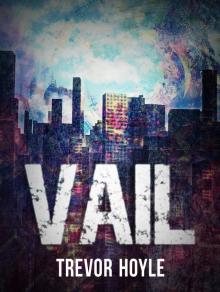 Vail
Vail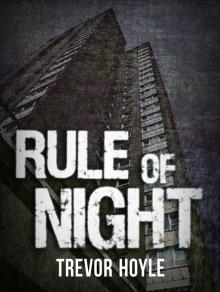 Rule of Night
Rule of Night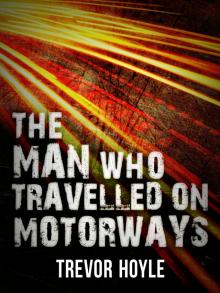 The Man Who Travelled on Motorways
The Man Who Travelled on Motorways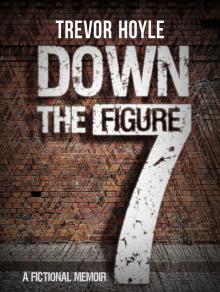 Down the Figure 7
Down the Figure 7 The Gods Look Down
The Gods Look Down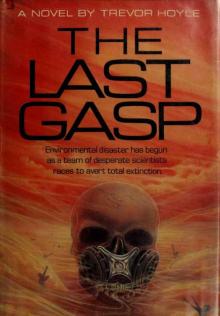 Last Gasp
Last Gasp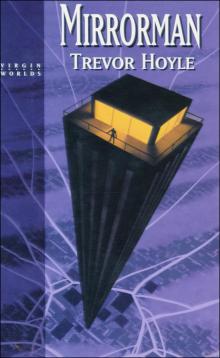 Mirrorman
Mirrorman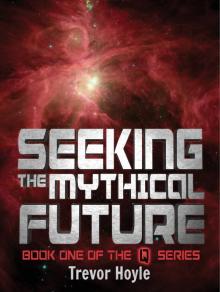 Seeking the Mythical Future
Seeking the Mythical Future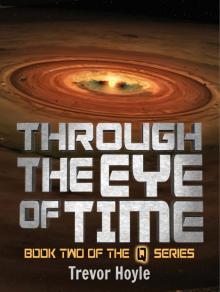 Through the Eye of Time
Through the Eye of Time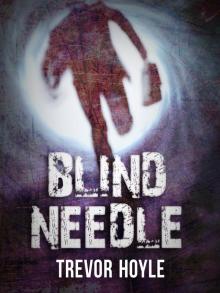 Blind Needle
Blind Needle Earth Cult
Earth Cult